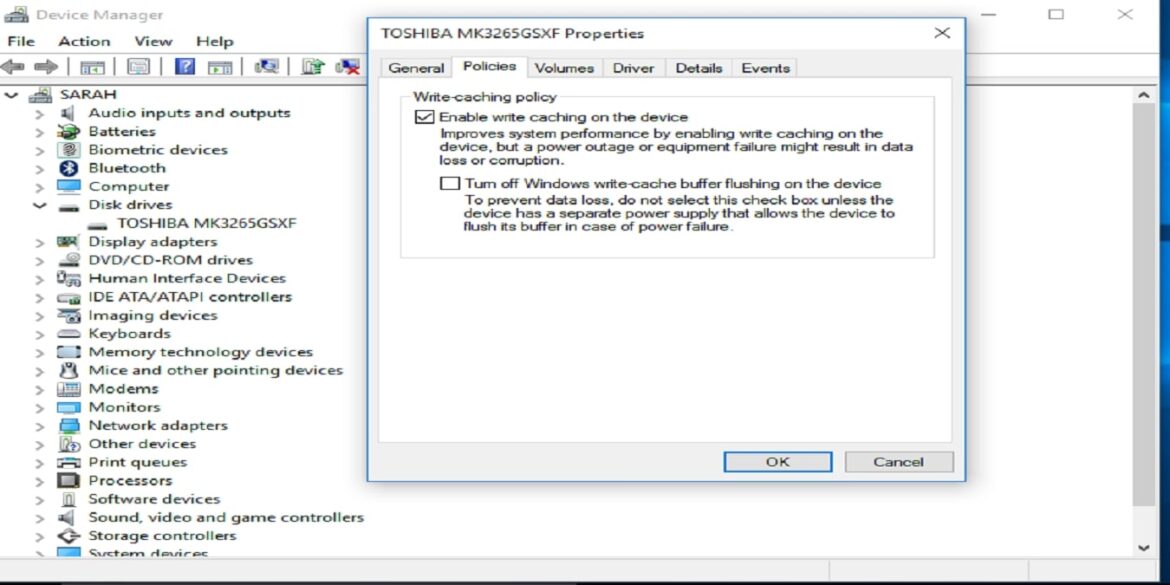A well-performing hard drive is crucial for the overall speed and efficiency of your computer. Over time, your hard drive’s performance can degrade due to various factors. Fortunately, there are several ways to optimize your hard drive’s performance and ensure it is running at its best. In this article, we will explore ten tips to help you optimize your hard drive and achieve better overall performance.
1. Regularly Defragment Your Hard Drive
Fragmentation occurs when files are divided into small pieces and scattered across different sectors on the hard drive. Defragmenting your hard drive reorganizes these fragmented files, allowing for faster file access and improved performance. Run the built-in defragmentation tool or consider using third-party software to defragment your hard drive regularly.
2. Keep Your Hard Drive Clean
Over time, your hard drive can accumulate unnecessary files and clutter, such as temporary files, internet cache, and system junk. Regularly clean up your hard drive by using tools like Disk Cleanup or third-party applications to remove unnecessary files and free up valuable disk space.
3. Optimize Startup Programs
Having too many unnecessary programs running at startup can significantly slow down your computer. Review your startup programs and disable any unnecessary ones from launching during boot. This will reduce the burden on your hard drive and enhance startup speed.
4. Use Reliable Antivirus Software
Viruses and malware can cause performance issues on your hard drive, consuming system resources and slowing down your computer. Install reputable antivirus software and keep it up to date to protect your hard drive from potential threats and ensure smooth operation.
5. Manage Your Storage Space
Maintain sufficient storage space on your hard drive to avoid performance degradation. When your hard drive is almost full, it can slow down file operations and affect overall system performance. Regularly delete unnecessary files, transfer large files to external storage, or consider upgrading to a higher-capacity hard drive.
6. Enable TRIM (for SSDs)
If you have a solid-state drive (SSD), enabling TRIM is important for maintaining its performance. TRIM helps optimize how data is stored on an SSD, preventing performance degradation over time. Check if TRIM is enabled in your operating system settings or consult your SSD manufacturer’s instructions.
7. Update Your Drivers and Firmware
Outdated drivers and firmware can cause compatibility issues and impact hard drive performance. Regularly check for updates from your device manufacturer and install the latest drivers and firmware to ensure proper functionality and performance.
8.Keep Your Operating System Updated
Operating system updates often include performance improvements and bug fixes. Stay up to date with the latest updates for your operating system, as these can contribute to optimizing your hard drive’s performance.
9. Avoid Overheating
Excessive heat can negatively impact the performance and lifespan of your hard drive. Make sure your computer has proper ventilation and cooling. Clean the air vents regularly to prevent dust buildup and overheating.
10. Perform Regular Data Backup
Regularly backing up your data is essential both for data security and performance optimization. If your hard drive fails, you can quickly restore your data without losing everything. Use reliable backup solutions such as external hard drives or cloud storage.
Conclusion
Optimizing your hard drive’s performance is crucial for achieving a smooth and efficient computing experience. By following the ten tips discussed above, including regular defragmentation, maintaining a clean hard drive, managing startup programs, using reliable antivirus software, managing storage space, enabling TRIM (for SSDs), updating drivers and firmware, keeping your operating system updated, preventing overheating, and performing regular data backups, you can ensure your hard drive performs at its best and prolong its lifespan.
